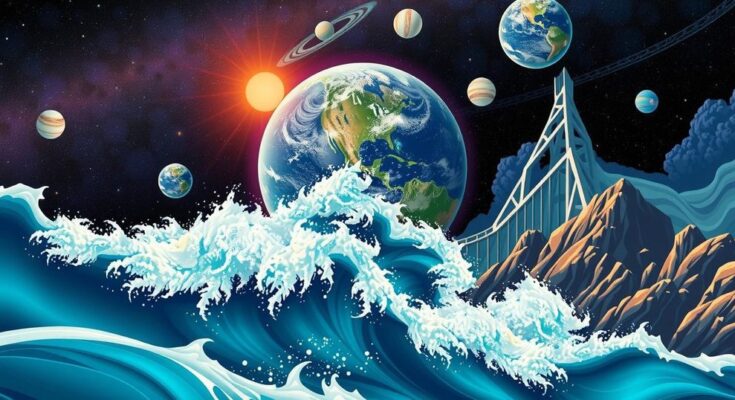A new race is emerging for control over finites resources on Earth and beyond, intensified by population growth, climate change, and technological advances. Key areas of competition include land for agriculture, ocean resources, and outer space mining. The balance between development and sustainability presents challenges and opportunities for global cooperation.
The new competition for controlling Earth’s finite resources is intensifying as demands rise for agricultural land, ocean resources, and outer space exploration. Climate change, population growth, and technological advances are exacerbating tensions that could lead to conflict, while also presenting opportunities for global cooperation to optimize resource management. Decisions made regarding natural resources have significant repercussions, as seen with the preservation of the Amazon rainforest or mining endeavors in oceans and space.
In regions like Africa and Brazil, land-use conflicts have emerged as communities struggle between development and environmental preservation. Technological advancements have prompted mining prospectors to identify opportunities in previously untapped areas, such as the seabed and outer space, raising ethical concerns regarding exploitation and environmental impact. As the search for new resources intensifies, nations and private entities are contending for dominance, prompting critical questions about sustainable practices and equitable resource distribution.
As the global population approaches 9 billion by mid-century and climate change pressures increase, the intricacies of resource management become more pronounced. The need for agricultural land will require substantial conversion while simultaneously protecting ecosystems is vital. Interests among local, national, and international stakeholders must align to make impactful decisions that prevent exacerbating inequalities and environmental degradation.
The oceans, once viewed as limitless, are experiencing similar pressures from overfishing, pollution, and emerging mining activities. The adoption of the High Seas Treaty aims to regulate and protect ocean resources, but challenges remain in navigating potential conflicts, especially in deep-sea mining. Regenerative ocean farming and innovative policies may mitigate food insecurity and restore ocean health amid a burgeoning demand for resources.
In outer space, competition for lunar and extraterrestrial resources is being likened to a modern gold rush, with countries and private firms racing to capitalize on technologies that may alleviate terrestrial pressures. The formation of international governance structures is critically important to address the exploitation of these resources responsibly. As the new space race unfolds, the balance between addressing Earth’s challenges and exploring the cosmos will dictate future strategies for resource management.
The intensifying competition for resources on land, in oceans, and outer space necessitates a pivotal approach to governance and cooperation. The increasing global population and climate change exacerbate tensions among nations and communities as they seek to balance development with sustainability. While conflicts are likely to arise, the potential for collaboration in pursuit of collective well-being and preservation of the planet’s ecosystems presents an opportunity to reshape resource management strategies.
Original Source: www.sei.org




